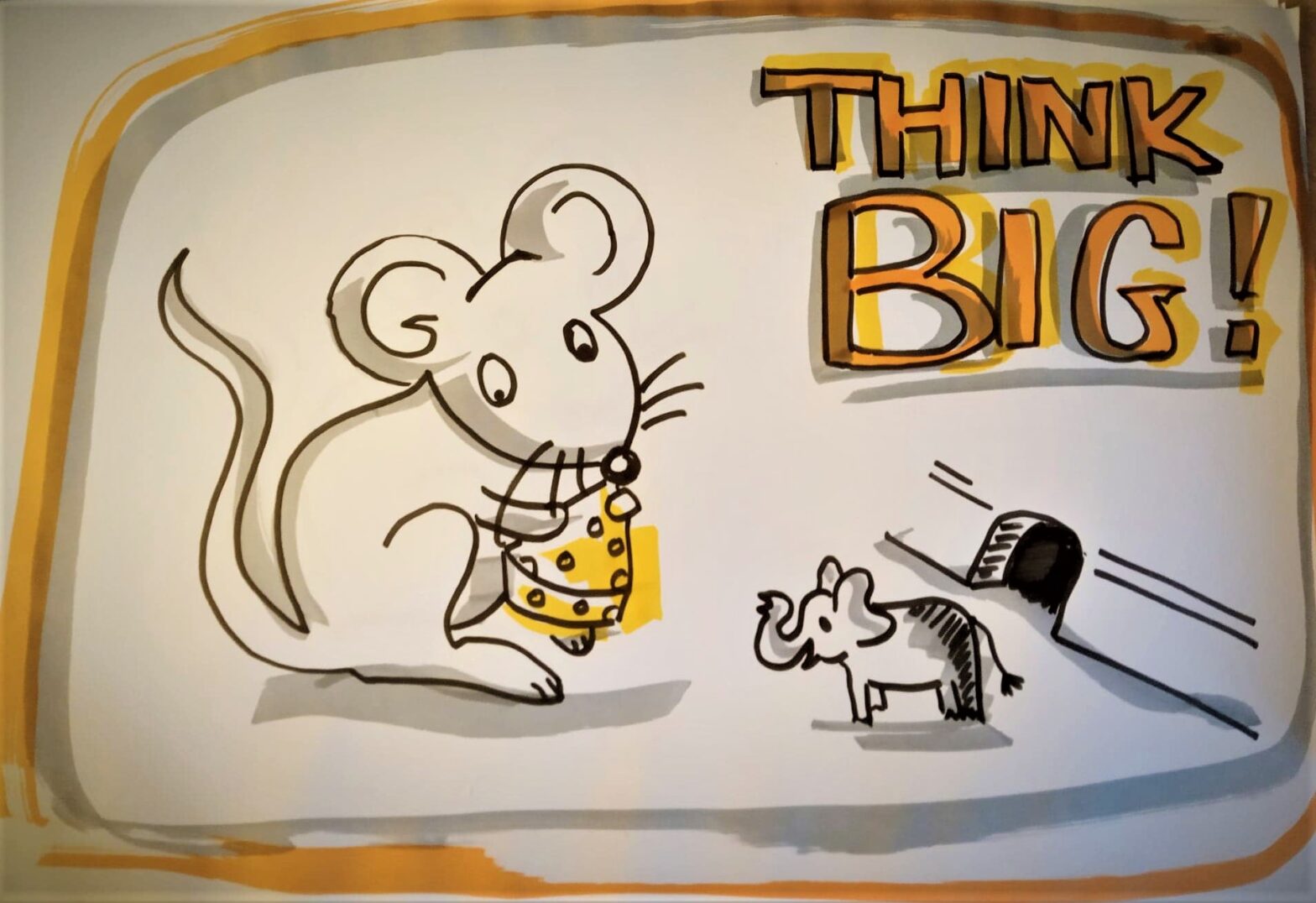At the end of the school term back in the late 70’s I was coming to the end of my Primary School years. We all made autograph books and collected signatures and comments from fellow pupils and our teachers as we said goodbye, looking towards Secondary School.
One entry in my book, I carry with me in everything I do – my fourth year teacher, who to be honest wasn’t my greatest fan – I think he found me a bit of a ‘smarty pants’ a different experience from my previous years, as the top of the class student often made me teacher’s pet – a status which gave me a difficult time with my contemporaries – I guess no one really likes a smarty pants.
This teacher drew the ‘Think Big’ picture in my book. Despite our differences, I took on his advice and my approach to life and work is very often underpinned by this ethic.
So, I have been musing over this and how we Think Big in the wake of COVID19. I am becoming drawn to ideologies which are now considering a degrowth approach, circular economies, moving towards enough rather than excess. Thinking Big at this time may seem a little of a juxtaposition.
-But is it?
Through this crisis, I have become starkly aware of the need for us to have a better understanding and application of equity. I admit to receiving a sharp lesson in the difference between equality and equity over the past few months.
The COVID-19 pandemic has been met with a heroic effort to ensure basic needs are met, to slow the spread of the virus and protect lives. The community together with the Third and Public Sectors’ response to the emergency has been unprecedented which will result in radical changes being made to the way we live and possibly how public services are structured, delivered and implemented.
Six months on from the start of lockdown, we perhaps need to take a step back and assess the landscape. In true ‘all hands to the pumps’ style all sectors have worked together and have done what has been needed to tackle the emergency. However, as the crisis is still ongoing, is it time to evaluate the effort to ensure the support is sustainable and equitable?
Equity is about giving people what they need, in order to make things fair. This is not the same as equality, nor is it the same as inequality. It is about giving more to those who need it, which is proportionate to their own circumstances, to ensure that everyone has the same opportunities. It is not about giving less to others; it is creating a level base for everyone to start from.
In rural areas the need for equity rather than equality is key. Food access can be more challenging for residents in remote areas where transport links are poor. In simple terms more resource may be required to give access to food to people in remote areas rather than free food. Whereas in a town setting where larger food outlets are within walking distance, there may be a greater need for access to free food due to the population size. A one size fits all approach is not the answer and possibly it is now time to have a ‘Big Think’ of how we build back better. As we begin to emerge from this crisis, the best aspects of the approach, collaboration, pace and flexibility of the COVID-19 emergency response should be preserved as we seek to rebuild our society. These can help ensure we work towards greater resilience and have a social recovery within our communities that tackles existing inequalities.
As agents of change, Third Sector Organisations need to be ready to challenge ourselves. The time to Think Big is now if we are to work our way through the complexities of the changes that need to happen to promote better equity in the new normal. We need to open the dialogue with public bodies to make the case for support for core funding so we can focus on impact rather than survival and focus on strategies which deal with the root causes rather than dealing with the symptoms.
Public bodies will need to look at the potential social impact multipliers to have confidence in the return on investment. That is Thinking Big.
These are big shifts in thinking but as we consider how we will rebuild and recover this presents us all with a Big opportunity to meaningfully address embedded social, environmental, and economic challenges.

